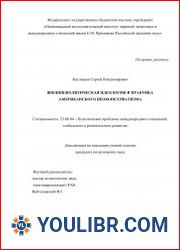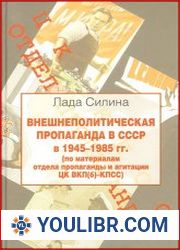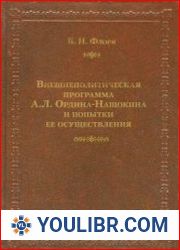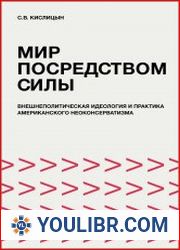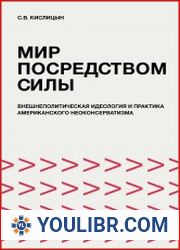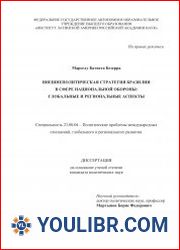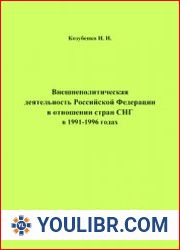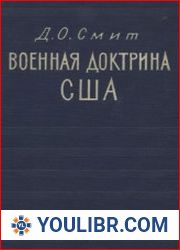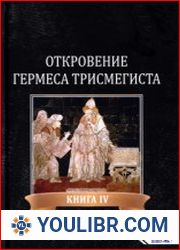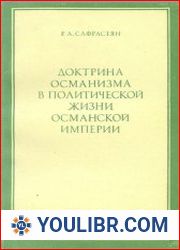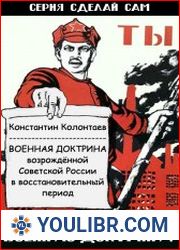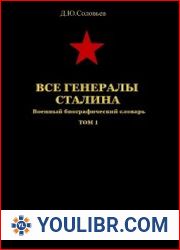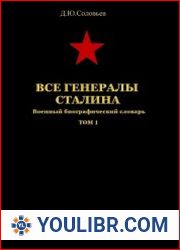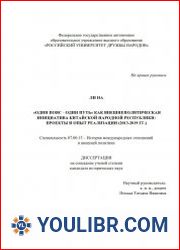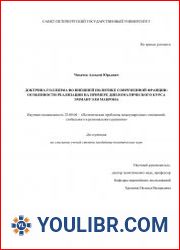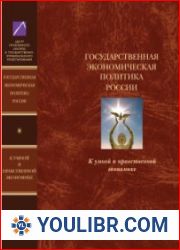
BOOKS - HISTORY - Внешнеполитическая доктрина Сталина...

Внешнеполитическая доктрина Сталина
Author: Александров М.В.
Year: 1995
Format: PDF | JPG
File size: 24 MB
Language: RU
Year: 1995
Format: PDF | JPG
File size: 24 MB
Language: RU
The book "Внешнеполитическая доктрина Сталина" (Stalin's Foreign Policy Doctrine) by Александров М. В. provides an in-depth analysis of the foreign policy doctrine of Joseph Stalin, the leader of the Soviet Union during the 1920s and 1930s. The book examines how Stalin's doctrine evolved over time and how it shaped the country's relations with other nations. The book begins by discussing the historical context of the Soviet Union during the 1920s and 1930s, including its isolation from the rest of the world due to the Russian Civil War and the subsequent economic and political challenges faced by the new communist government. Despite these challenges, the Soviet Union under Stalin's leadership managed to achieve significant successes in terms of industrialization, modernization, and military strength. The book then delves into the key components of Stalin's foreign policy doctrine, including his belief in the need for a strong state, the importance of military power, and the role of ideology in shaping international relations. The author argues that Stalin's views on these issues were deeply rooted in Marxist-Leninist theory and were influenced by his own experiences as a revolutionary leader. One of the central themes of the book is the concept of "socialism in one country which was Stalin's response to the global capitalist crisis of the 1920s and 1930s. This idea posited that socialism could be achieved within a single nation-state, rather than through international cooperation and collaboration.
В книге «Внешнеполитическая доктрина Сталина» (Внешнеполитическая доктрина Сталина) Александров М.В представлен глубокий анализ внешнеполитической доктрины Иосифа Сталина, лидера Советского Союза в 1920-х и 1930-х годах. В книге рассматривается, как со временем развивалась доктрина Сталина и как она формировала отношения страны с другими нациями. Книга начинается с обсуждения исторического контекста Советского Союза в течение 1920-х и 1930-х годов, включая его изоляцию от остального мира из-за Гражданской войны в России и последующих экономических и политических проблем, с которыми столкнулось новое коммунистическое правительство. Несмотря на эти вызовы, Советскому Союзу под руководством Сталина удалось добиться значительных успехов в плане индустриализации, модернизации, военной мощи. Затем книга углубляется в ключевые компоненты внешнеполитической доктрины Сталина, включая его веру в необходимость сильного государства, важность военной мощи и роль идеологии в формировании международных отношений. Автор утверждает, что взгляды Сталина на эти вопросы были глубоко укоренены в марксистско-ленинской теории и находились под влиянием его собственного опыта революционного лидера. Одной из центральных тем книги является концепция «социализма в одной стране», которая была ответом Сталина на глобальный капиталистический кризис 1920-х и 1930-х годов. Эта идея утверждала, что социализм может быть достигнут в рамках одного национального государства, а не через международное сотрудничество и сотрудничество.
libro «Doctrina Stalin de política exterior» (Doctrina Stalin de política exterior) de Alexandrov M. Presenta un análisis profundo de la doctrina de política exterior de Iósif Stalin, líder de la Unión Soviética en las décadas de 1920 y 1930. libro examina cómo la doctrina de Stalin evolucionó con el tiempo y cómo formó las relaciones del país con otras naciones. libro comienza con una discusión sobre el contexto histórico de la Unión Soviética durante las décadas de 1920 y 1930, incluyendo su aislamiento del resto del mundo debido a la Guerra Civil Rusa y los problemas económicos y políticos posteriores que enfrentó el nuevo gobierno comunista. A pesar de estos desafíos, la Unión Soviética, bajo el liderazgo de Stalin, logró avances significativos en términos de industrialización, modernización y poder militar. libro profundiza entonces en los componentes clave de la doctrina de política exterior de Stalin, incluyendo su creencia en la necesidad de un estado fuerte, la importancia del poder militar y el papel de la ideología en la formación de las relaciones internacionales. autor sostiene que las opiniones de Stalin sobre estas cuestiones estaban profundamente arraigadas en la teoría marxista-leninista y estaban influenciadas por su propia experiencia como líder revolucionario. Uno de los temas centrales del libro es el concepto de «socialismo en un solo país», que fue la respuesta de Stalin a la crisis capitalista global de los 20 y 30. Esta idea sostenía que el socialismo podía lograrse dentro de un solo Estado-nación y no a través de la cooperación y cooperación internacional.
''











